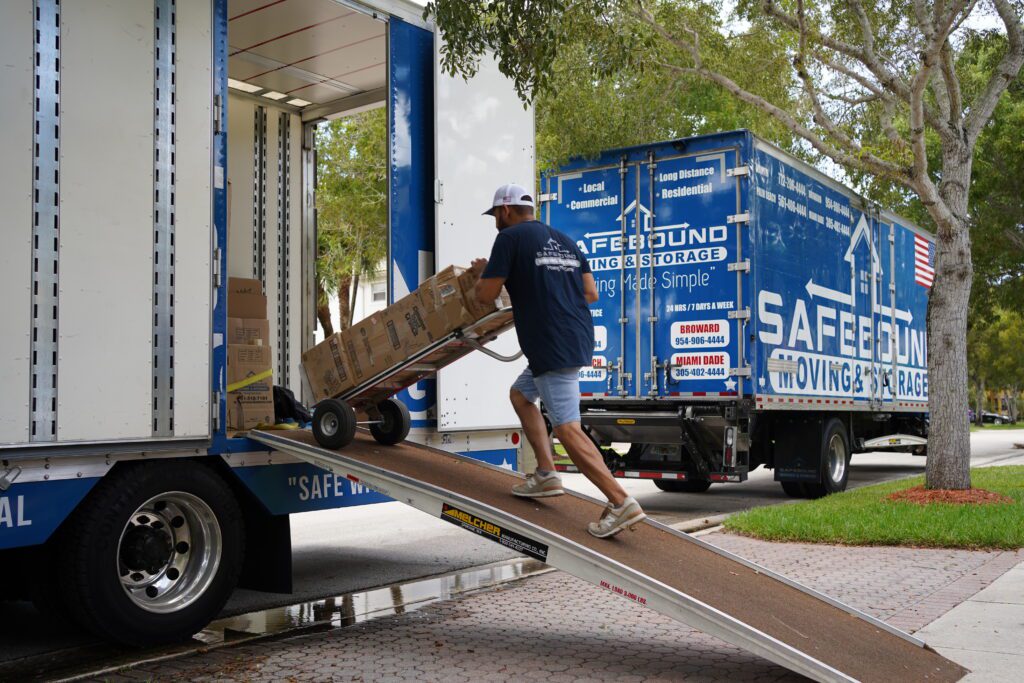When is the best time to move?
Summer is the peak season for the moving industry. As a result, the best time to move is typically in the summer. Favorable weather conditions and school breaks are advantages of a summer move. However, since movers are extremely busy during the summer, you must schedule your move months in advance. If you want generally lower rates and would like to avoid fully booked moving companies, move during the off-season, which is usually during late fall and winter.
When should I call a moving company for a free moving estimate?
Try to request a free moving estimate as soon as you have decided you are going to move. Give your moving company at least four to six weeks’ notice before your moving date. The earlier, the better, the more likely Safebound Moving & Storage can schedule your preferred pickup and delivery dates.
What is the difference between a non-binding estimate and a binding estimate?
A moving estimate is the approximate cost of your move, as estimated by a relocation specialist. This estimate is calculated based on the moving services you want and a visual survey of your home and items.
A binding estimate is a contract that specifies the cost of your move in advance based on the services requested or required at the time the estimate was calculated. If additional services are used during the move, the total cost will increase.
A non-binding estimate is based on the actual volume of your shipment in addition to the cost of any services that are provided. To calculate the shipment volume, the estimator will complete a video walkthrough of your home.
How and when should I pay my movers?
Generally, there is a moving deposit you have to pay when you book your move and finalize your pickup date. The initial booking deposit usually should not be more than 30% to 35% of your moving estimate. You will have to pay the rest of the moving charges when your shipment is delivered to its designated destination before your movers start unloading.
How do I know if my movers are licensed and insured?
You can check if your movers are licensed and insured by knowing their DOT and MC license numbers. This information should be available on the moving company’s website, advertising materials, and moving trucks. If not, request them from your movers. Verify these license numbers with the U.S. Department of Transportation (DOT) and the local authority.
These are the license numbers of our moving company in South Florida, Safebound Moving & Storage.
- Local State License: IM2839
- USDOT Number: 2900155
- ICC MC: IM2839
Am I protected against loss or damage while my items are in transit?
Yes, but the protection you get depends on the valuation coverage you choose. Valuation is not insurance; it is the liability of the moving company. If you desire insurance, you will likely have to consult with your insurance company. Homeowner’s insurance may cover moving, so ask your insurance provider.
By law, licensed moving companies are required to offer limited liability protection, also known as Released Value Protection. This is covered in your base moving cost and does not require additional charges. Under this coverage option, the mover assumes liability for no more than 60 cents per pound per article. The protection is minimal.
For those who want more protection, moving companies often offer a Full Value Protection option at an additional charge. Under this coverage option, the mover assumes liability for the replacement value of lost or damaged goods in your entire shipment. If any article is lost, damaged, or destroyed while in the care of the moving company, they will offer to do one of the following for each item:
- Repair the item
- Replace it with a similar item
- Make a cash settlement for the cost of the repair
- Make a cash settlement for the current market replacement value

